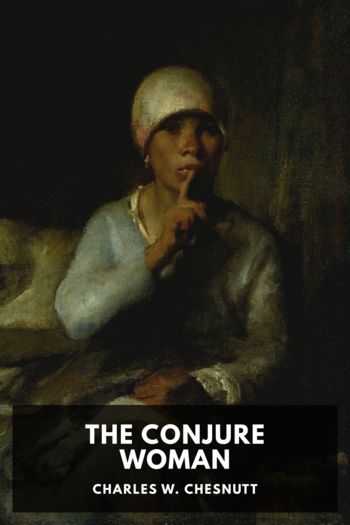The Lives of the Caesars, Suetonius [best book club books for discussion .TXT] 📗

- Author: Suetonius
Book online «The Lives of the Caesars, Suetonius [best book club books for discussion .TXT] 📗». Author Suetonius
The stronger provinces, which could neither easily nor safely be governed by annual meetings, he took to himself; the others he assigned to proconsular governors selected by lot. But he changed some of them at times from one class to the other, and often visited many of both sorts. Certain of the cities which had treaties with Rome, but were on the road to ruin through their lawlessness, he deprived of their independence; he relieved others that were overwhelmed with debt, rebuilt some which had been destroyed by earthquakes, and gave Latin rights144 or full citizenship to such as could point to services rendered the Roman people. I believe there is no province, excepting only Africa and Sardinia, which he did not visit; and he was planning to cross to these from Sicily after his defeat of Sextus Pompeius, but was prevented by a series of violent storms, and later had neither the opportunity nor occasion to make the voyage.
Except in a few instances he restored the kingdoms of which he gained possession by the right of conquest to those from whom he had taken them or joined them with other foreign nations. He also united the kings with whom he was in alliance by mutual ties, and was very ready to propose or favour intermarriages or friendships among them. He never failed to treat them all with consideration as integral parts of the empire, regularly appointing a guardian for such as were too young to rule or whose minds were affected, until they grew up or recovered; and he brought up the children of many of them and educated them with his own.
Of his military forces he assigned legions and auxiliaries to the various provinces, stationed a fleet at Misenum and another at Ravenna, to defend the Upper and Lower seas, and employed the remainder partly in the defence of the city and partly in that of his own person, disbanding a troop of Calagurritani which had formed a part of his bodyguard until the overthrow of Antony, and also one of Germans, which he had retained until the defeat of Varus. However, he never allowed more than three cohorts to remain in the city and even those were without a permanent camp; the rest he regularly sent to winter or summer quarters in the towns near Rome. Furthermore, he restricted all the soldiery everywhere to a fixed scale of pay and allowances, designating the duration of their service and the rewards on its completion according to each man’s rank, in order to keep them from being tempted to revolution after their discharge either by age or poverty. To have funds ready at all times without difficulty for maintaining the soldiers and paying the rewards due to them, he established a military treasury, supported by new taxes.
To enable what was going on in each of the provinces to be reported and known more speedily and promptly, he at first stationed young men at short intervals along the military roads, and afterwards post-chaises. The latter has seemed the more convenient arrangement, since the same men who bring the dispatches from any place can, if occasion demands, be questioned as well.
In passports,145 dispatches, and private letters he used as his seal at first a sphinx, later an image of Alexander the Great, and finally his own, carved by the hand of Dioscurides; and this his successors continued to use as their seal. He always attached to all letters the exact hour, not only of the day, but even of the night, to indicate precisely when they were written.
The evidences of his clemency and moderation are numerous and strong. Not to give the full list of the men of the opposite faction whom he not only pardoned and spared, but allowed to hold high positions in the state, I may say that he thought it enough to punish two plebeians, Junius Novatus and Cassius Patavinus, with a fine and with a mild form of banishment respectively, although the former had circulated a most scathing letter about him under the name of the young Agrippa, while the latter had openly declared at a large dinner party that he lacked neither the earnest desire nor the courage to kill him. Again, when he was hearing a case against Aemilius Aelianus of Corduba and it was made the chief offence, amongst other charges, that he was in the habit of expressing a bad opinion of Caesar, Augustus turned to the accused with assumed anger and said: “I wish you could prove the truth of that. I’ll let Aelianus know that I have a tongue as well as he, for I’ll say even more about him;” and he made no further inquiry either at the time or afterwards. When Tiberius complained to him of the same thing in a letter, but in more forcible language, he replied as follows: “My dear Tiberius, do not be carried away by the ardour of youth in this matter, or take it too much to heart that anyone speak evil of me; we must be content if we can stop anyone from doing evil to us.”
Although well aware that it was usual to vote temples even to proconsuls, he would not accept one even in a province save jointly in his own name and that of Rome. In the city itself he refused this honour most emphatically, even melting down the silver statues which had been set up in his honour in former times and with the money coined from them dedicating golden tripods to Apollo of the Palatine.
When the people did their best to force the dictatorship upon him, he knelt down, threw off his toga from his shoulders and with





Comments (0)